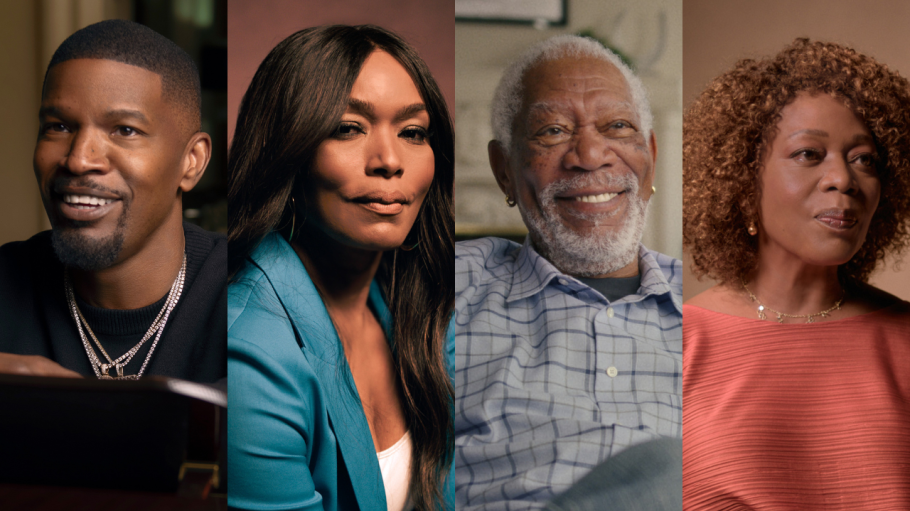The new two-part documentary “Number One on the Call Sheet” on Apple TV+ explores the pinnacles of achievement, yet there are many documentaries regarding the link between Black Americans and Hollywood.
The first series, which focused on Black leading men, was directed by Reggie Hudlin, who told NBC News that it was a story about success. “It’s a tale about realizing aspirations.”
Some of the biggest stars in the industry, including Idris Elba, Dwayne “The Rock” Johnson, and Denzel Washington, are featured in his chapter. The documentaries were also produced by Kevin Hart and Jamie Foxx, who are interviewed.
Hudlin investigates how these fantasies materialized and whether each individual intentionally sought them out. The variety of responses demonstrates that there is no one way to succeed as a Black starring guy in Hollywood.
READ MORE: Warning Sign For Hollywood: Younger Consumers Prefer Creator Content To Premium Television And Films
As the producer of “Django Unchained” and a seasoned filmmaker of the masterpieces “House Party” and “Boomerang,” Hudlin, who is seen questioning the actors, is more of a peer to the guys. Their communication is made more intimate by that dynamic. There are some parts that seem more like eavesdropping.

“It wasn’t just ‘We’re going to promote the latest movie,’ so it was a very laid-back atmosphere,” Hudlin said. “You mean we’re just conversing? It so happened that there were cameras there. Thus, it was fantastic.
When Eddie Murphy joined the cast of “Saturday Night Live” at the age of 19, he shot to prominence. Given how hard Sidney Poitier and Harry Belafonte worked to unlock those doors, he discusses how there is no set formula for a Black leading man to become an immediate star.

Hudlin also questions the performers about their personal lives. Speaking about work-life balance, Hudlin stated, “I believe there are some really poignant stories from Will Smith, Kevin Hart, and Jamie Foxx,” which “you know, are questions that people ask women, right? Men are also concerned about their spouses and children.
READ MORE: Texas Is Attempting To Become The Next Hollywood In These Ways
When Smith talks about his daughter Willow, who achieved early success in music at the age of 10 with her 2011 hit “Whip My Hair,” he admits his failings as a father. Johnson discusses how, following the breakdown of his first marriage, he altered his perspective on family and Hollywood career.
The second installment’s director, Shola Lynch, did not have the same Hollywood familiarity as Hudlin when it came to Black women. Rather, the director of the documentaries “Free Angela Davis and All Political Prisoners” and “Chisholm ’72: Unbought and Unbossed” stated that she also sees her participation through a historical perspective.
“That there are 17″ Black women in Hollywood who might be seen as leading ladies is sort of amazing,” she added, adding that’s not all the people we could have spoken with. “So, it serves as a means of designating a time period.”

Angela Bassett, Whoopi Goldberg, Gabrielle Union, Halle Berry, Viola Davis, Alfre Woodard, and others are among the 17 ladies.
Viewers may observe that men play a larger role in these discussions than women did in the accompanying segment, whether it is Nia Long talking about John Singleton or Berry talking about how she approached trying out for Spike Lee in “Jungle Fever.”
READ MORE: Technicolor’s Ascent And Decline In Hollywood’s Golden Age
According to Lynch, “it’s a component of the construction of how women are placed in Hollywood.” The main reason they are the leading woman is to help the man. I take assuming that’s been the custom? Because they were drawn into a Will Smith film or something, several of the women have had some of their more prominent positions. The women’s story is about overcoming the way that sexism functions in our culture and how it is mirrored in Hollywood.

Union and Davis both talk about how Black women haven’t had many opportunity to take the lead on screen. While Davis talks about how few leading roles are available for women of her age and color, Union is open about how playing the best friend to white women leads because of her pleasant mainstream look dominates the majority of her early resume. Long responds to the claims that she is “difficult,” while Octavia Spencer describes her early work as a nurse.
But here, it’s not the difficulties that stand out the most. Lynch points out that it’s something more fundamental.
Regarding the endeavor overall, Lynch remarked, “What I found beautiful is the brotherhood, sisterhood part of it.” “We need to see each other more and recognize that excellence because, really, there’s a reason you’re at the top of the game.”
Step into the ultimate entertainment experience with Radiant TV! Movies, TV series, exclusive interviews, live events, music, and more—stream anytime, anywhere. Download now on various devices including iPhone, Android, smart TVs, Apple TV, Fire Stick, and more!


